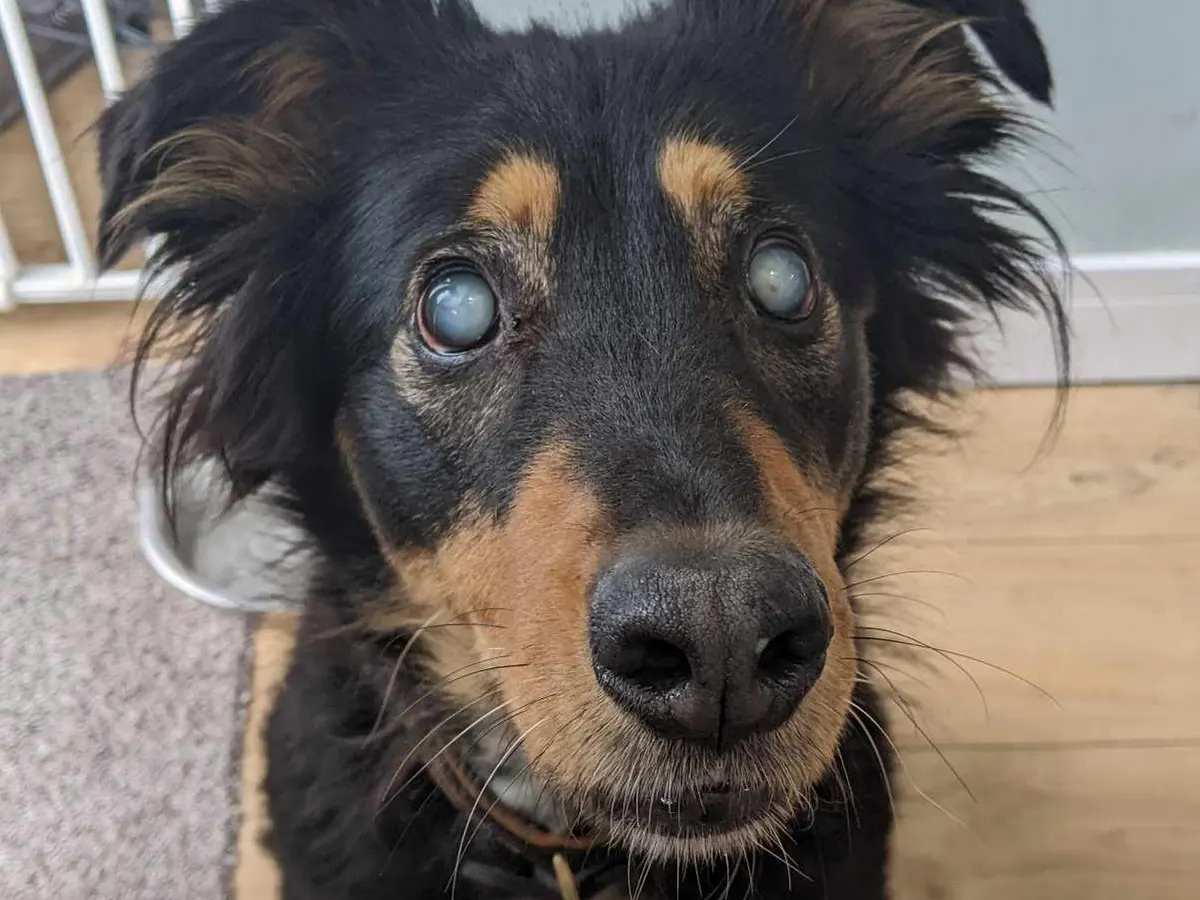Genetic test could eradicate a type of inherited blindness in dogs
A mountain rescue dog whose duties ended after her eyesight failed has helped scientists create a test that could eradicate the genetic eye condition in her breed for good.
Shola the English shepherd has an inherited eye disease called progressive retinal atrophy (PRA) that causes the light-sensitive cells at the back of the eye to deteriorate, eventually leading to blindness.
PRA affects more than 100 dog breeds, can be caused by a number of different genetic variants and has no treatment. For some types, symptoms do not appear until the dog is several years old, by which point they may have passed their genes on to puppies.
Katherine Stanbury, the first author of the research from the University of Cambridge, said Shola was four years old when she began struggling with her vision in dim light.
“She was sent to a veterinary ophthalmologist and they confirmed that she had PRA,” said Stanbury. “And then it turned out her brother also had PRA.”
Stanbury and colleagues have not only identified the genetic variant responsible for the condition in English shepherds but developed a £48 DNA test to reveal whether dogs have none, one or two copies of the variant.
While Stanbury said variants that cause PRA were typically breed-specific, the team will now screen any dog affected by an inherited eye disease for the new variant.
“If it does pop up in another breed, we can monitor that,” she said.
The research began when Shola and her brother were brought to the team’s attention by their concerned breeder.
Writing in the journal Genes, Stanbury and colleagues reported how they carried out whole genome sequencing on the siblings’ DNA but found neither had genetic variants previously associated with PRA, suggesting a different variant was at play.
In a series of analyses using these genomes, as well as data on the genetic makeup of two additional English shepherds with PRA and 22 clear of eye disease, the team identified the variant responsible.
They hope the DNA test will enable owners to identify English shepherds with PRA early and avoid using them for breeding, raising the potential for PRA to be eliminated from the breed.
“You could still breed from a carrier [which has one copy of the variant], as long as you breed with a clear dog,” Stanbury said, adding that was important for genetic variation given the breed is relatively rare, especially in the UK.
She said the team had tested the father of Shola’s offspring, revealing the latter would not develop PRA.
“Two of her daughters have just completed their mountain rescue training with Mountain Rescue England,” said Stanbury. “And one of her sons is a therapy dog.”
Indeed one of the rescue dogs recently saved a man’s life. “[The owners] know that none of those dogs are going to go blind and have all that training be wasted,” Stanbury said.
International Conference on Genetics and Genomics of Diseases
Visit: genetics-conferences.healthcarek.com
Award Nomination: x-i.me/gennom1
Award registration: x-i.me/genreg2
Member Nomination: x-i.me/genmember
Member Registration: x-i.me/genreg1
For Enquiries: genetics@healthcarek.com
Get Connected Here
---------------------------------
---------------------------------
Pinterest: x-i.me/genpt
Twitter: x-i.me/gentw
Facebook: x-i.me/genfb
Instagram: x-i.me/genin
Youtube: x-i.me/genyt
Blogger: x-i.me/genbl

Comments
Post a Comment